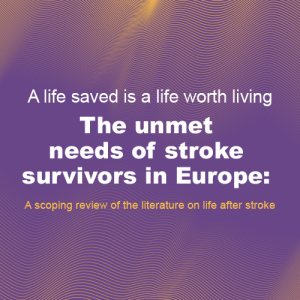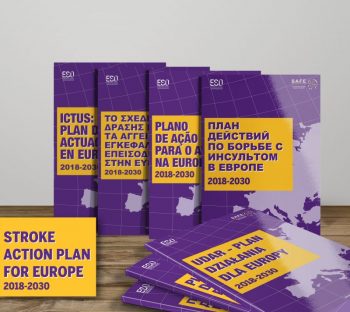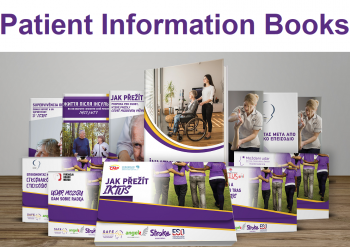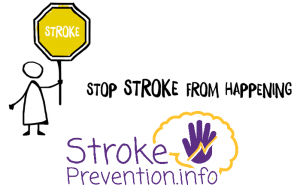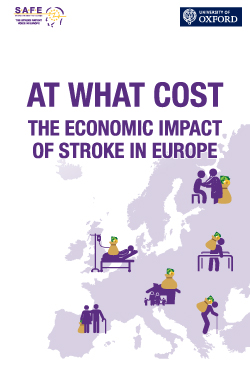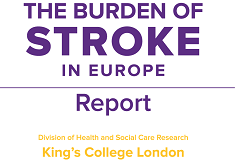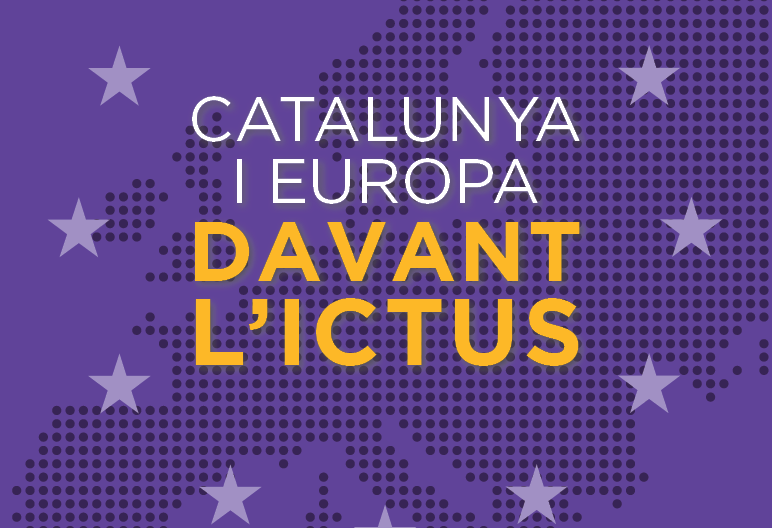
Jun 1, 2018
Written by Maties Salom, Fundació Ictus Barcelona
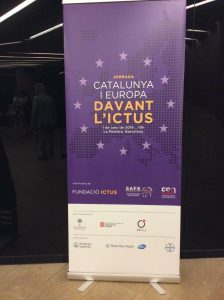 Barcelona, 1st June 2018- The Fundació Ictus, a stroke support organisation from Barcelona, organised today a gathering related to the challenges that stroke presents for all European countries. At this meeting, the Catalan Foundation introduced data on stroke in Catalonia, following the path opened by the Stroke Alliance for Europe with The Burden of Stroke Report, published in 2017. The conference “Catalunya i Europa davant l’ictus” (“Catalonia and Europe in front of the stroke“) was opened by SAFE President, Jon Barrick, and European Stroke Organisation Past President, Valeria Caso. The meeting convened more than 150 people with different professional backgrounds- medics, researchers, stroke survivors and their relatives.
Barcelona, 1st June 2018- The Fundació Ictus, a stroke support organisation from Barcelona, organised today a gathering related to the challenges that stroke presents for all European countries. At this meeting, the Catalan Foundation introduced data on stroke in Catalonia, following the path opened by the Stroke Alliance for Europe with The Burden of Stroke Report, published in 2017. The conference “Catalunya i Europa davant l’ictus” (“Catalonia and Europe in front of the stroke“) was opened by SAFE President, Jon Barrick, and European Stroke Organisation Past President, Valeria Caso. The meeting convened more than 150 people with different professional backgrounds- medics, researchers, stroke survivors and their relatives.
Approximately 13.000 stroke patients get admitted in the Catalan hospitals every year. This condition’s incidence is almost 180 cases for every 100.000 people and mortality is 29,5/100.000. The conference faces issues in domains of research, primary prevention, stroke services organisation, acute stroke management, rehabilitation and life after stroke.
Speakers addressed all of these points in two round tables which helped build a complete overview of the situation with stroke in Europe and outlined a road map for all the countries over the next decade.
The meeting mainly focused on the stroke situation in Catalonia and presented the Catalan point of view of the Stroke Action Plan for Europe 2019-2030, recently presented in the European Parliament by ESO and SAFE. The Member of the European Parliament, Mr Ramon Tremosa, provided the institutional point of view of the discussed issues.
The neurologist from Barcelona, Mr Angel Chamorro, presentated the current state of stroke care in Catalonia, which is very good at the moment, but they are looking at the 2030 targets and striving for excellence.

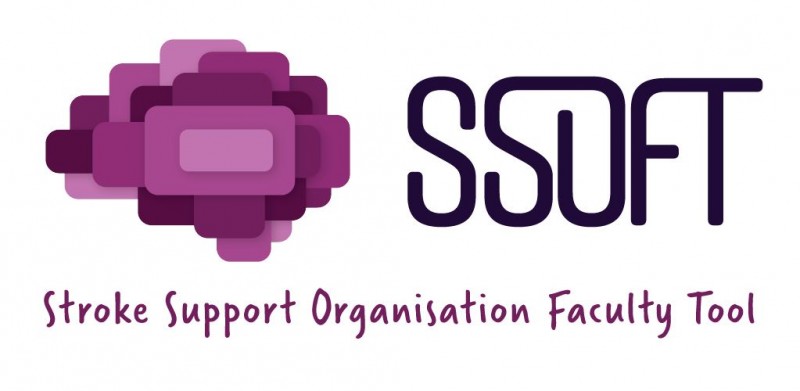
May 31, 2018
Brussels, 31st May 2018 – The eLearning Module 2 of the Stroke Support Organisation Faculty Tool (SSOFT) is published today at the following address www.ssoft.info.
SSOFT’s second module focuses on the principles around advocacy, and is delivered in ten bite-sized sub-modules:
2.1 – Why does stroke care need to improve?
2.2 – What is advocacy?
2.3 – Unmet needs
2.4 – The value of evidence
2.5 – Decisions
2.6 – The health policy environment
2.7 – Identifying the decision makers
2.8 – Setting clear objectives
2.9 – Developing a strategy
2.10 – Your advocacy work
The module provides learners with a wealth of knowledge and includes videos, interactive content and activities. Learners will be able to work through the sub-modules at their own pace, earn rewards and share their progress on social media. (more…)
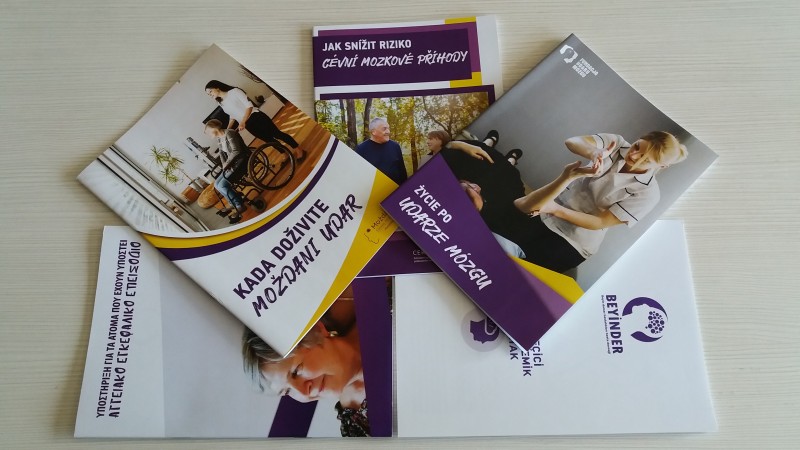
May 30, 2018
This May in 12 European countries: Spain, Serbia, Poland, Czech Republic, Latvia, Croatia, Macedonia, Greece, Ukraine, Georgia, Hungary and Turkey, stroke patients and their carers in a selected number of hospitals will be provided with information on stroke and important next steps on their path to recovery.
The patient-focused materials are made of five brochures, including a list of national, regional and local stroke support organisations, with their contact details, in order that patients and carers can access further support in the months and years following their stroke. The information provided in the brochures are kindly provided by the Stroke Association UK*and then translated to all project languages, applying the information standard procedure for the translation.
The original brochures are in English language and you can access their original content by following the links below:
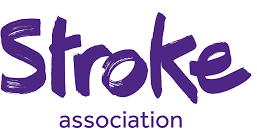
Transient ischaemic attack
Next steps after stroke
Supporting a stroke survivor
When you have a stroke
How to reduce your risk
Please scroll down to see who is our member organisation in each project country and click on each photo to access the brochures in different languages.
Hungarian language – SAFE member Stroke Liga Nemzeti

Latvian language: Parsirdi.lv

Croatian language: Croatian Stroke Society (HDPMU)


Polish language: Fundacja Udaru Mózgu

Spanish language: Federación Española del Ictus: FEI



Georgian language: Mkurnali Foundation

Czech language: Organisations CEREBRUM and Sdružení pro rehabilitaci osob po cévní mozkové příhodě (Association for rehabilitation of persons after stroke)



Ukrainian language: School for Stroke Survivors (SSS) “Victory over the stroke”

*The Stroke Association UK: Copyright and disclaimer
The Stroke Association does not take responsibility for any errors that may appear in the translation, or the effects that an error may have. The original information contained in the publication should only be considered accurate until the published review date.
Please be aware that this information is not intended as a substitute for specialist professional advice tailored to your situation. We strive to ensure that the content we provide is accurate and up-to-date, but information can change over time. So far as is permitted by law, the Stroke Association does not accept any liability in relation to the use of the information in this publication, or any third-party information or websites included or referred to.

May 30, 2018
SAFE is proud to be part of the Angels Initiative project, providing critical information to stroke patients when they most need it, already in the stroke unit. The realisation of this project started simultaneously this May in 12 European countries: Spain, Serbia, Poland, Czech Republic, Latvia, Croatia, Macedonia, Greece, Ukraine, Georgia, Hungary and Turkey. (more…)
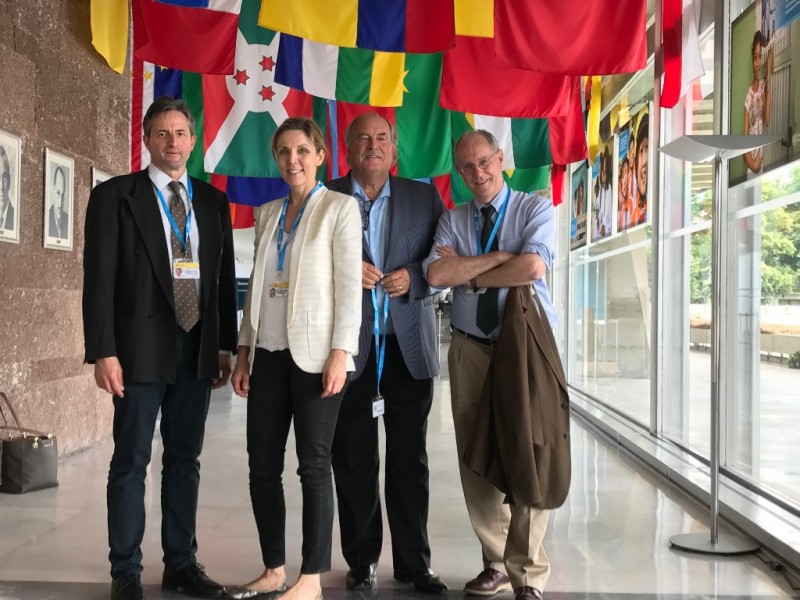
May 28, 2018
The text first appeared on the World Stroke Organisation blog
The World Stroke Organization leadership team and stroke survivors drawn from our membership network are in Geneva this week. They are contributing to critical health policy discussions taking place in and around the 71st World Health Assembly. In a packed programme they will be participating in sessions; contributing to partnership side-events; meeting with WHO technical leads and collaborating with our advocacy colleagues in the Non-Communicable Disease (NCD) arena to improve stroke prevention and equitable access to quality clinical care. (more…)
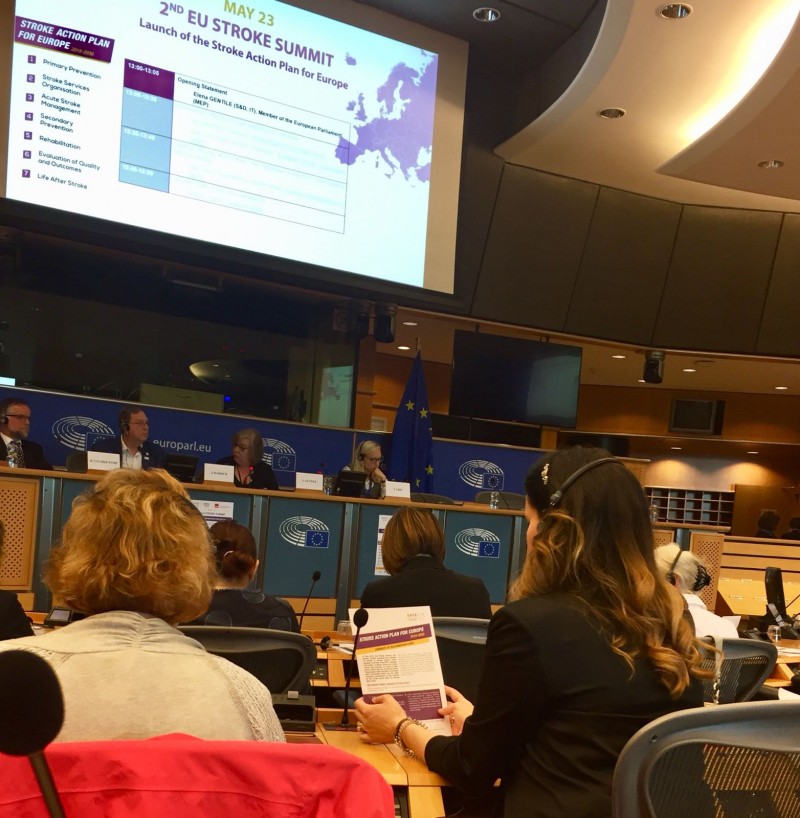
May 23, 2018
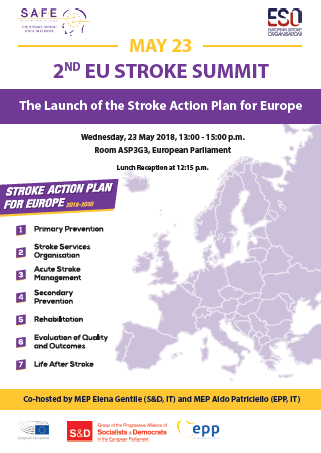 The Stroke Action Plan for Europe 2018-2030 was launched today in the EU Parliament within the 2nd Stroke Summit.
The Stroke Action Plan for Europe 2018-2030 was launched today in the EU Parliament within the 2nd Stroke Summit.
Last year, in May 2017, SAFE launched the Burden of Stroke Report which unveiled shocking disparities between and within European countries along the entire stroke care pathway. In order to take action, SAFE and the European Stroke Organisation (ESO) decided to formalise their partnership which has led, after extensive consultation and tireless work, to the creation of the Stroke Action Plan for Europe 2018-2030.
This document sets important targets covering seven key pillars, from primary prevention to life after stroke. The report was launched today at the 2nd Stroke Summit in the European Parliament in front of around 70 key stakeholders including patients, healthcare professionals and policy-makers. The event was co-hosted by MEP Elena Gentile (S&D, IT), who showed her support to stroke survivors and stroke-related issues across Europe.
All the speakers welcomed the Stroke Action Plan and saluted the effort made by SAFE and ESO in making the Stroke Action Plan for Europe possible. It provides a clear road map and outlines recommendations and targets for 2030 so that all relevant stakeholders take action to improve the stroke care pathway and reverse the current trends.
Currently, an increase of 34% in the absolute number of strokes is expected by 2035 in Europe, along with a 45% increase in the number of stroke deaths, and a 25% increase in the number of survivors living with the long-lasting effects of stroke. Action needs to be taken to prevent stroke more efficiently, provide timely and adequate treatment and rehabilitation to those who need it, and last but not the least, to improve the lives of stroke survivors and their families across Europe by providing the right level of support in their Life After Stroke. (more…)
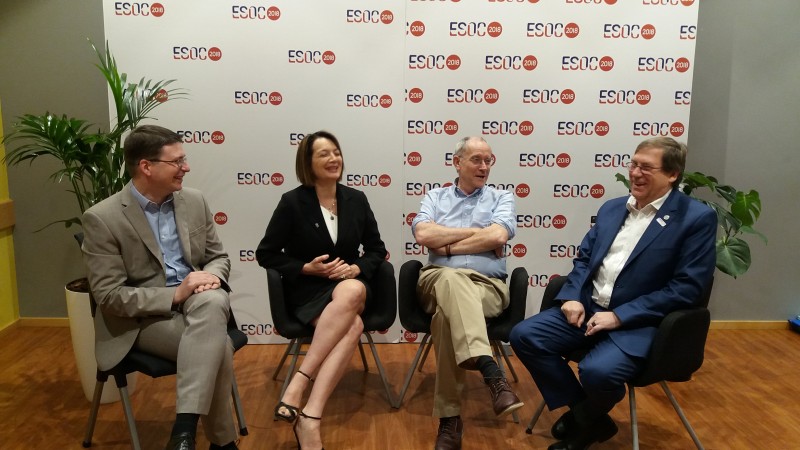
May 17, 2018
Building on the preceding Helsingborg Declarations of 1995 and 2006, the European Stroke Action Plan was launched today at ESOC 2018. It creates an aspirational framework to drive healthcare policy, research priorities, local stroke management and patient-focused care to meet the need demonstrated in the ESO/SAFE Burden of Stroke report, with €45 billion direct and indirect healthcare costs each year, a 34% increase in strokes by the year 2035 due to the ageing population, and huge variations in the level of stroke care available across Europe.
Stroke Action Plan Chair, Prof Bo Norrving, said: “Resources for stroke do not match the societal impact and burden of the condition. ESO has joined forces with SAFE to define the priorities for stroke care and research across Europe over the next decade.”
(more…)

May 16, 2018
WAKE-UP has provided a new treatment option for stroke patients if it is not known when their stroke started.
Up to 20 per cent of stroke patients wake up in the morning with stroke symptoms. This means that the time when their stroke started is unknown and so they are not routinely eligible for clot-busting treatment (thrombolysis) with drugs such as as alteplase, which is only approved to be used within 4.5 hours after the start of stroke symptoms. Every year about two million patients have a stroke in the EU, including approximately 400.000 patients with ‘wake-up- stroke’ or who otherwise have unknown time of symptom onset.
Now, the WAKE-UP study has revealed for the first time that selecting patients for treatment based on what is shown in their MRI brain images can be used to decide if they get thrombolysis. By comparing different images from the MRI examination, clinicians can now deduce when a stroke is likely to have started, and whether a patient is likely to benefit from thrombolysis. (more…)

May 14, 2018
Posted on Friday May 11, 2018 by The Foundry Healthcare
I am a child of immigration. Both my parents came to the UK for their education, and because of this the value and importance of education has been a strong influence in my life. I believe that education can equalise the playing field, it can transform the potential of anyone and can create real change. To me the Stroke Support Organisation Faculty Tool, SSOFT, incorporates these important aspects; equal access, increased potential and the means to change things for the better. (more…)

May 11, 2018
Stroke Action Plan for Europe 2018-2030
Basel and Brussels, 11 May 2018 – Just one year after signing a Memorandum of Understanding, the European Stroke Organisation (ESO) and the Stroke Alliance for Europe (SAFE) are proud to present the “The Stroke Action Plan for Europe 2018-2030”, with the aim of significantly improving stroke care and Life after Stroke for the millions of people expected to have strokes over the next 12 years.
ESO and SAFE will present the Stroke Action Plan for Europe to the medical world for the first time in a joint session at ESOC in Gothenburg on Thursday, 17 May. In addition to speakers from ESO and SAFE, the World Health Organisation (WHO) perspective on Joining Forces in Combating Stroke in Europe will be presented. (more…)

 Barcelona, 1st June 2018- The Fundació Ictus, a stroke support organisation from Barcelona, organised today a gathering related to the challenges that stroke presents for all European countries. At this meeting, the Catalan Foundation introduced data on stroke in Catalonia, following the path opened by the Stroke Alliance for Europe with The Burden of Stroke Report, published in 2017. The conference “Catalunya i Europa davant l’ictus” (“Catalonia and Europe in front of the stroke“) was opened by SAFE President, Jon Barrick, and European Stroke Organisation Past President, Valeria Caso. The meeting convened more than 150 people with different professional backgrounds- medics, researchers, stroke survivors and their relatives.
Barcelona, 1st June 2018- The Fundació Ictus, a stroke support organisation from Barcelona, organised today a gathering related to the challenges that stroke presents for all European countries. At this meeting, the Catalan Foundation introduced data on stroke in Catalonia, following the path opened by the Stroke Alliance for Europe with The Burden of Stroke Report, published in 2017. The conference “Catalunya i Europa davant l’ictus” (“Catalonia and Europe in front of the stroke“) was opened by SAFE President, Jon Barrick, and European Stroke Organisation Past President, Valeria Caso. The meeting convened more than 150 people with different professional backgrounds- medics, researchers, stroke survivors and their relatives.



















 The Stroke Action Plan for Europe 2018-2030 was launched today in the EU Parliament within the 2nd Stroke Summit.
The Stroke Action Plan for Europe 2018-2030 was launched today in the EU Parliament within the 2nd Stroke Summit.

